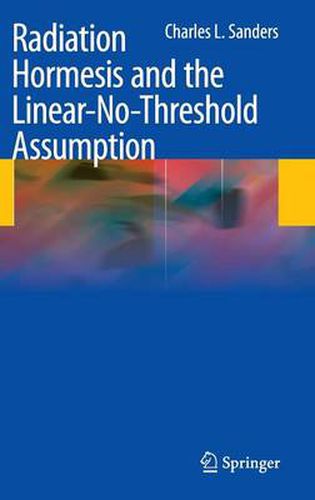Readings Newsletter
Become a Readings Member to make your shopping experience even easier.
Sign in or sign up for free!
You’re not far away from qualifying for FREE standard shipping within Australia
You’ve qualified for FREE standard shipping within Australia
The cart is loading…






This title is printed to order. This book may have been self-published. If so, we cannot guarantee the quality of the content. In the main most books will have gone through the editing process however some may not. We therefore suggest that you be aware of this before ordering this book. If in doubt check either the author or publisher’s details as we are unable to accept any returns unless they are faulty. Please contact us if you have any questions.
Current radiation protection standards are based upon the application of the linear no-threshold (LNT) assumption, which considers that even very low doses of ionizing radiation can cause cancer. The radiation hormesis hypothesis, by contrast, proposes that low-dose ionizing radiation is beneficial. In this book, the author examines all facets of radiation hormesis in detail, including the history of the concept and mechanisms, and presents comprehensive, up-to-date reviews for major cancer types. It is explained how low-dose radiation can in fact decrease all-cause and all-cancer mortality and help to control metastatic cancer. Attention is also drawn to biases in epidemiological research when using the LNT assumption. The author shows how proponents of the LNT assumption consistently reject, manipulate, and deliberately ignore an overwhelming abundance of published data and falsely claim that no reliable data are available at doses of less than 100 mSv.
$9.00 standard shipping within Australia
FREE standard shipping within Australia for orders over $100.00
Express & International shipping calculated at checkout
This title is printed to order. This book may have been self-published. If so, we cannot guarantee the quality of the content. In the main most books will have gone through the editing process however some may not. We therefore suggest that you be aware of this before ordering this book. If in doubt check either the author or publisher’s details as we are unable to accept any returns unless they are faulty. Please contact us if you have any questions.
Current radiation protection standards are based upon the application of the linear no-threshold (LNT) assumption, which considers that even very low doses of ionizing radiation can cause cancer. The radiation hormesis hypothesis, by contrast, proposes that low-dose ionizing radiation is beneficial. In this book, the author examines all facets of radiation hormesis in detail, including the history of the concept and mechanisms, and presents comprehensive, up-to-date reviews for major cancer types. It is explained how low-dose radiation can in fact decrease all-cause and all-cancer mortality and help to control metastatic cancer. Attention is also drawn to biases in epidemiological research when using the LNT assumption. The author shows how proponents of the LNT assumption consistently reject, manipulate, and deliberately ignore an overwhelming abundance of published data and falsely claim that no reliable data are available at doses of less than 100 mSv.